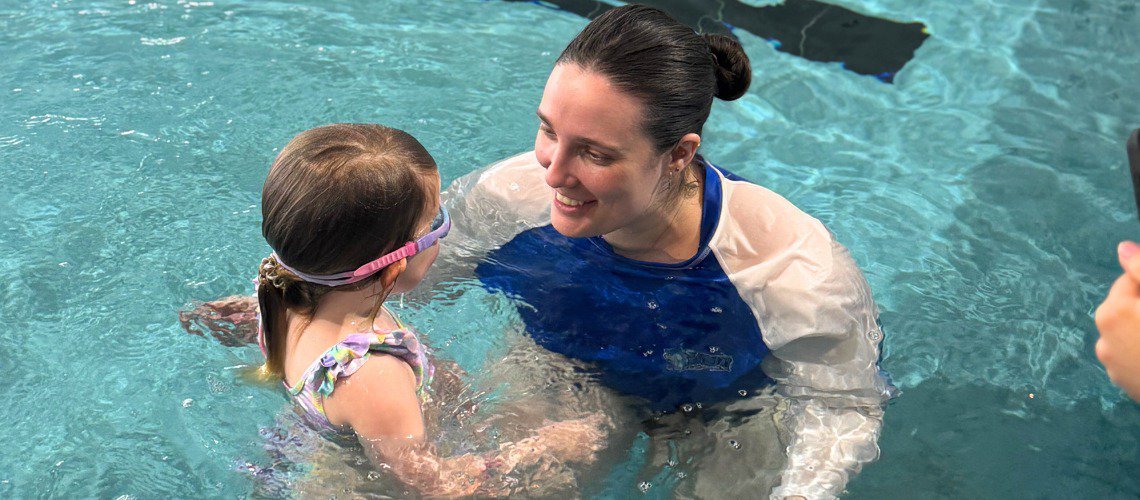At BlueFit Swimming, we understand that lesson day can bring a wave of emotions, for both children and parents. Whether it’s their very first time in the pool or just a wobbly week, it’s normal for kids to feel nervous about swimming lessons. But here’s the truth: nerves aren’t a setback, they’re the first step toward building confidence.
We believe every child can learn to love the water. All it takes is time, trust and a tailored approach that supports each swimmer exactly where they are.
Why Nerves Are Normal (and Even Helpful!)
Feeling nervous before swimming lessons is completely natural. Pools are full of new sensations like bright lights, splashing sounds and the unique feeling of moving in water. For some kids, it can feel overwhelming. These nerves might show up as reluctance to enter the pool, clinginess, tears, or even a refusal to participate.
But here’s the good news: nerves are just part of the learning process. When managed with patience and empathy, they can become powerful stepping stones to progress.
Our Gentle Path to Water Confidence
At BlueFit Swimming, we don’t rush kids through, we guide them gently from fear to fun. Here’s how you can help ease lesson day jitters and build your child’s water confidence:
1. Start with Small Wins
Forget about perfect technique or completing laps. Instead, celebrate small moments, like putting on swim gear, sitting poolside or entering the water for a few minutes. These little victories help build emotional resilience and a sense of achievement.
2. Make Water Familiar Outside the Pool
Create a playful water routine at home. Bathtime games, splashing in a bucket, or using toys in a paddling pool help your child associate water with joy, not anxiety. Repetition helps transform the unknown into the comfortable.
3. Let Them Have a Say
Involve your child in lesson day prep. Let them choose their towel, swimwear, or goggles. Simple choices help build ownership and reduce anxiety. During lessons, allow them to observe before diving in, this builds trust and gives them a sense of control.
4. Model Calm and Confidence
Kids are emotional sponges – they reflect what we show. If you appear calm and positive, your child is more likely to feel the same. Stay relaxed and encouraging, even if your child resists. Your steady presence is their anchor.
5. Create Rituals and Predictability
Knowing what to expect helps ease nerves. Before each lesson, talk through the steps in a calm voice: “We’ll walk in together, meet your teacher, and sit on the pool edge.” After lessons, create a comforting ritual, maybe it’s a warm cuddle in a towel or a snack they love.
How Our Instructors Support Nervous Swimmers
Our instructors are trained in more than just swim skills, they’re experts in emotional coaching too. For children feeling anxious on lesson day, we:
- Use gentle, reassuring language
- Incorporate playful games to reduce tension
- Adjust activities to suit the child’s comfort level
- Build trust through consistent, familiar routines
- Never rush a child – progress comes at their pace
If you're concerned, talk to us! Our team is happy to work with you on a plan, whether that’s beginning with shorter sessions, watching a class from poolside, or pairing with a familiar instructor.
The Magic on the Other Side of Nerves
We’ve watched hundreds of hesitant swimmers turn into confident, joyful ones. What starts with a tearful goodbye at the the side of the pool often ends in laughter, splashes, and a high five at the end of the lane.
Managing nerves isn’t about removing fear, it’s about gently guiding children through it, one splash at a time.
At BlueFit Swimming, we’re committed to making lesson day something your child looks forward to -not fears. Because when confidence replaces nerves, magic happens!
